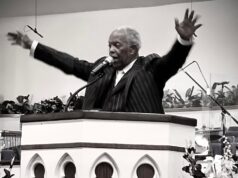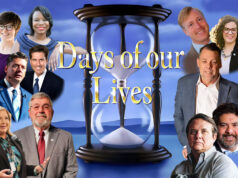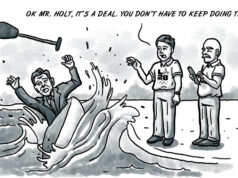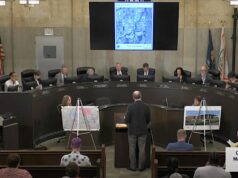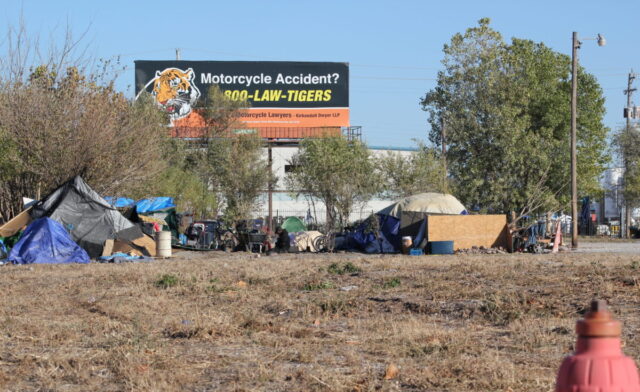
After hours of discussion and public comments today, a proposed Oklahoma City ordinance that would have allowed police to cite and arrest homeless people in camps around the city was withdrawn by its lead author.
Ward 8 Councilman Mark Stonecipher, Ward 1 Councilman Bradley Carter and Ward 4 Councilman Todd Stone introduced the proposed ordinance, which also would have banned homeless encampments on public property, including city, county, state and federal land.
A separate memorandum of understanding with the Oklahoma Department of Transportation would have allowed police officers to arrest homeless people encamped at bridges and underpasses within the OKC city limits.
After about four hours of OKC City Council discussion, Stonecipher moved to have the agenda item deferred to the end of January. But Ward 7 Councilwoman Nikki Nice, who opposed the proposal, moved to strike the ordinance altogether or defer it indefinitely.
After some discussion about parliamentary rules, Stonecipher initially suggested deferring the agenda item indefinitely before agreeing to strike it altogether and start over at a later time.
Stonecipher, who recently announced his intent to run for reelection next year, said earlier in the meeting that his idea for the proposed ordinance came from an experience he had seeing a homeless person in distress during a snow storm outside Beverly’s Pancake House on Northwest Expressway, where he had gone to purchase soup for a sick family member.
“I pull in there and they have soup, and so I order some for my family member,” Stonecipher told the council. “Then a woman comes in and says there’s a homeless man who may be dead and asks me to help. The person wasn’t dead, but he was in below-zero-degree weather with wind chill, and he was in a sleeping bag. So I called police, and I said we need to take this person somewhere or he’s going to freeze to death. The police said we can’t do anything on private property unless the owner signs a trespassing complaint.”
Residents speak out against ordinance
Several hours of public comment followed Stonecipher’s explanation. Homeless Alliance executive director Dan Straughan said Oklahoma City has about 1,400 homeless people on most days and about 850 beds to house them within the city.
“I understand and sympathize with the feelings of frustration and exacerbation that brought these changes before the council,” he said. “I, too, hate seeing people sleeping on the streets. And I think that’s the goal of these ordinances — to get people off the streets. I think our disagreement is simply one of what tools do we use, what path are we going to take to make that happen.”
Throughout Monday’s meeting, Stonecipher said he had modeled the ordinance after similar ordinances in Houston and San Diego, which he said have reduced homeless populations in those cities. But Straughan said Houston had much more at its disposal than an ordinance.
“We have heard a lot of talk about Houston’s success with this ordinance, but I do want to point out that when those ordinances were passed, the City of Houston put up $50 million. County government matched that dollar for dollar, and then H.U.D. put in $100 million,” Straughan told the council. “So they had $200 million with their ordinance to invest in street outreach, behavioral health services and, most importantly, housing. Any success Houston has had is from the $200 million investment in programs that work, not the impact of the ordinance.”
Amy Warne, who is challenging Stonecipher for Ward 8 in the Feb. 14 OKC City Council elections, said the Oklahoma County Jail is not a safe place for anyone who would be detained owing to the proposed ordinance. She also referenced Oklahoma City’s failed ordinance that banned panhandling in street medians, which was later deemed unconstitutional by the U.S. Supreme Court. The city was required to pay about $1 million in legal fees for the plaintiffs in that case.
“This proposal is eerily similar to what the citizens of OKC have already lost and paid for,” Warne told the council. “[Stonecipher] claims he wants to protect those without homes from freezing to death. The answer to that is not to put them in a jail that has seen 15 deaths this year.”
Oklahoma City resident Hannah Royce told the council that the proposed ordinance was antithetical to Christian principles.
“I remember ‘What would Jesus do?’ being quoted by you, Councilman Stone, the day our Human Rights Council was formed,” Royce said. “That was a tense day in this room. And I think it’s an appropriate time to ask that question again: What would Jesus do? I think he definitely would have signed up to speak today in opposition to these ordinances at the very least, and I know those who truly follow him and his teachings know how he treated those in need, and it wasn’t with handcuffs.”
Rep. Mauree Turner (D-OKC) reflected on their own experience with housing insecurity growing up in a single-parent home with three siblings and a roof that was caving in. They said it was time for more creativity on the City Council.
“If we sit in these elected positions and we do not have the creativity to think about and listen to community members that are asking us to care for them, then maybe this is not the job for us,” Turner said. “We have to be willing to creatively think about the community care we are able to provide, and criminalizing homelessness is not the solution to care for our people.”
Of the day’s many speakers, only former mayoral candidate Carol Hefner and her husband, Robert, spoke in favor of the ordinance. During her failed campaign last year, Hefner frequently painted Oklahoma City as a hellish dystopia overrun with homeless people bussed in from the west coast, a theme she continued in Monday’s meeting.
“I decided to speak with some of the people that were homeless,” Hefner said about research she had done during her campaign. “There were 94 people in total. Of the 94 I spoke with, 89 of them were not from Oklahoma. They were from the west coast. So I asked them how they got here. They got here with a one-way bus ticket to our city. They were paid to get here.”
Councilmembers weigh in
Following public comments, Stone said his intent in supporting the ordinance was not to put homeless people in jail.
“I can tell you from my standpoint, this was never about trying to move moving people into jail,” he told the council. “It was never about trying to fine people who, frankly, can’t pay fines anyway. It was about trying to make sure (…) that we can connect them with services.”
Earlier in the meeting, Ward 6 Councilwoman JoBeth Hamon said she understands why Stonecipher, Stone and Carter want to help the homeless, but she added that their approach is wrong.
“I sympathize with people who see people suffering and want to do something about it, but this is not that thing,” she said.
Mayor David Holt also said he was opposed to the ordinance.
“I just don’t believe this was brought forward in a way that our best work is usually done,” Holt said. “And you have subject matter experts in the room who have been at the forefront of an effort that has brought our (homeless) population down per capita 42 percent over the last 15 years, and if this conversation continues, I would love to see those subject matter experts who have demonstrated their effectiveness and expertise be an integral part of future conversations.”
Over the next several months, Holt is expected to help lead community and council conversations regarding a potential tax package that would provided hundreds of millions of dollars to finance a proposed new arena for the Oklahoma City Thunder basketball team. Holt and city leaders successfully advocated for the passage of the MAPS 4 sales tax extension in December 2019, which included $55.7 million for the city to implement a “housing-first” strategy.










